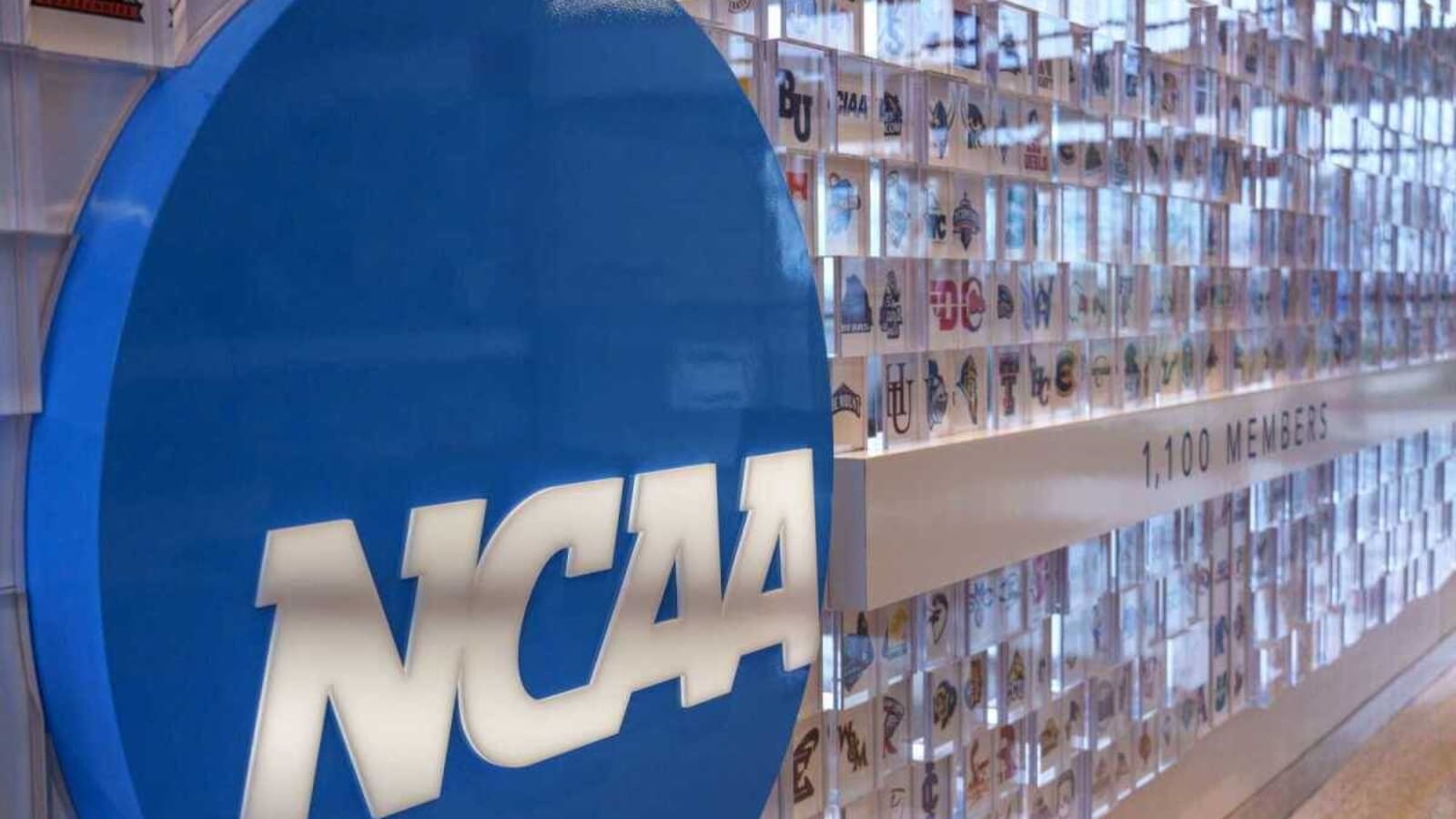
By Rock Westfall
Iowa State athletic director Jamie Pollard sees the future and says it doesn’t work. The Des Moines Register reported that at a recent Cyclone Tailgate Tour kickoff event in West Des Moines, Pollard tore into the College Football Playoff format and said it is another example of the sport’s current lawless state. Pollard warned that the Big Ten and SEC are pulling away from the rest of the conferences, allowing them to shape the future of policy to the detriment of the rest of college football.
Pollard accused the Big Ten and SEC of trying to devour the ACC and Big 12. And then, Pollard offered his mic drop moment with a cryptic warning that the SEC and Big Ten will “eat their own.”
Pollard added that “those who have all the gold make all the rules” and suggested that those schools currently in the Big Ten and SEC should start looking over their shoulders because “the top of the SEC is not going to want the bottom of the SEC.”
In fact, Pollard is on to something. Things are getting so desperate that Clemson, Florida State, and North Carolina want out of the ACC. Thus, there is talk of firing low-revenue ACC schools to preserve the league with bigger payments to its marquee members. Indeed, it's a dog-eat-dog world in today's college football.
Sankey & Petitti Warned - The Future Will Not Need Two Commissioners
Pollard also offered a historical perspective on the 1970 merger of the American Football League and the National Football League. “When the AFL and NFL merged, they only needed one commissioner. There’s going to come a day when they don’t need two $6 million a year commissioners, and they’re going to eat their own. And if we think that’s not going to happen, you’re a fool because we didn’t think Pac-12 would get eaten, and it did.”
Pollard reminded everyone it was not that long ago when nobody could fathom the demise of the Pac-12 Conference. Yet it happened. So why would it not happen again?
Certainly, millions of frustrated college football fans salivate at the thought of SEC commissioner Greg Sankey and Big Ten commissioner Tony Petitti conspiring to kill the other’s career. It would be appointment viewing and unimaginably delightful schadenfreude.
Logical Conclusions Based on Hard Currency
Pollard’s theories make sense because they are based on brutal realities. The Big Ten and SEC will make nearly $1 billion in annual payments to its member schools, while the Big 12 is in the $700 million range. The two superpower leagues will hog 29 percent of the College Football Playoff revenue, while the ACC and Big 12 will get only 15 percent of the CFP money. ACC football programs are estimated to expect $30 to $40 million less than SEC or Big Ten football teams this season.
Why would the SEC and Big Ten not merge after the financial and physical realignment of their teams? This possibility leads to frightening territory for the lower-class neighborhoods of the power conferences.
For example, if the Big Ten and SEC formed today, would they invite programs such as Northwestern, Vanderbilt, Mississippi State, or Rutgers as members? It’s hard to fathom that they would.
In fact, schools not pulling their financial weight leads to a discussion held in the ACC regarding a potential reformation in which the league would downsize and negotiate a new TV deal to save its power brands, including Florida State and Clemson. Such a plan would close the financial gap between the ACC and the two superpower conferences. On his Friday segment on the Bill King Show, Pete Cordelli confirmed there is new momentum for this idea.
Old arrangements that make no sense today especially apply in the cases of Vandy and Northwestern, who are private institutions located in major league pro markets. Both schools get buried as far as local media attention. Additionally, they can’t keep up with power programs such as Georgia, Alabama, and Ohio State. Also, each school suffers from perennially poor attendance, even during winning seasons.
To Northwestern's credit, they do invest in their program and are currently building a spectacular new stadium with all of the modern conveniences. Vanderbilt has been working on some end zone renovations but has never made a serious investment or effort in football.
Gaining the World at the Cost of One’s Soul
Pollard is correct about the eventual collision course college football is on. There will be plenty more carnage in the years ahead. And once the Big Ten and SEC devour the financially smaller entities, a climatctic final clash will occur.
College football is an 18-wheeler heading full speed off a cliff by adopting a full professional model with only high-revenue teams at its top. Thus, Loyalty is to the almighty dollar, and the forsaking of antiquated traditions of having schools such as Vanderbilt and Northwestern in the most powerful leagues must end.
What is most worrisome is that good programs with passionate fan bases, such as Kansas State, Iowa State, Utah, Oklahoma State, Texas Tech, etc., are at risk of becoming second-tier.
College football will have to consume itself to save itself. The current path may bring in billions, but it will do so at the cost of the game’s soul.
More must-reads:
- Former NFL GM has huge praise for Packers QB Jordan Love
- Red Sox lose yet another player to injury
- The 'MLB stolen base leaders' quiz
Breaking News
Customize Your Newsletter
 +
+
Get the latest news and rumors, customized to your favorite sports and teams. Emailed daily. Always free!

